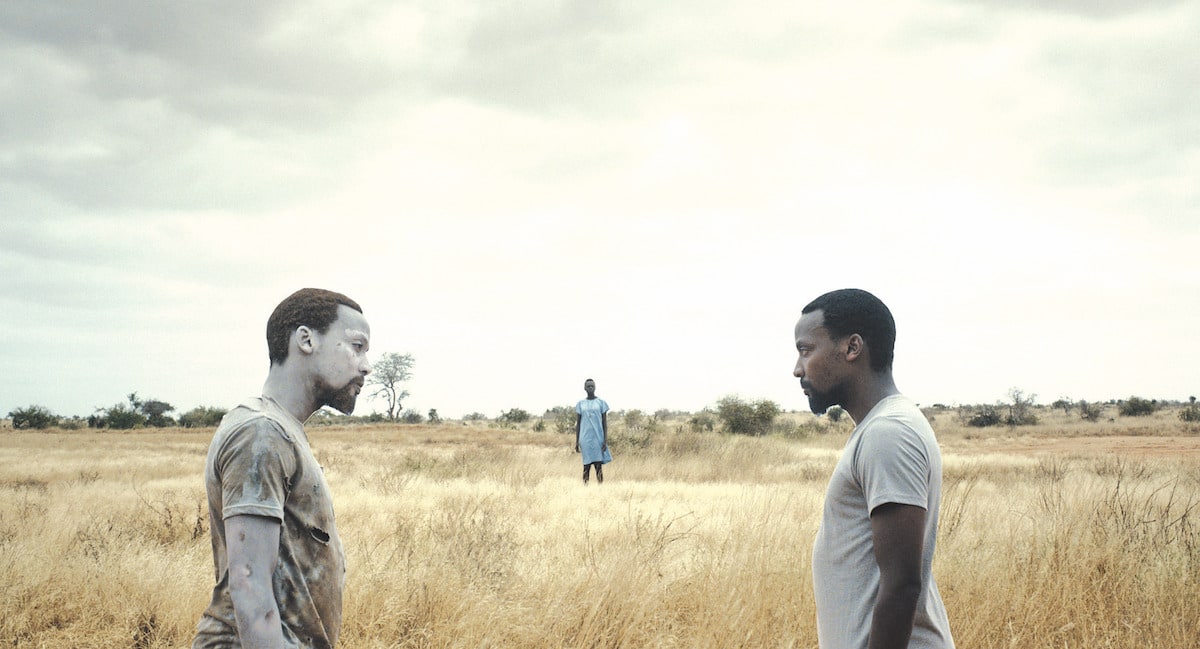Is Kati Kati a metaphor for the present crisis in Kenya?
What characterizes daily life in Kenya: a seemingly simultaneous flagrant zest for life and hesitant fascination with death.

A still from 'Kati Kati.'
The fifth collaboration from One Fine Day Films and Ginger Ink productions, “Kati Kati,” is a beautiful movie. Set in the land in between, (literally Kati Kati in Swahili), it focuses on Kaleche, our protagonist, who having woken up in this liminal space, embarks on the journey to find out how she died and the circumstances that keep her suspended in this unknown.
Kati Kati trailer
Though a film about dead people, Kati Kati is not just a film about dead people. Mbithi Masya’s work is rather, a poetic portrayal of little triumphs amidst tragedy, the humor implicit in our foibles and the work it takes for us to let go. What’s more, in eliding the themes common in many films from Kenya (developmentalist, urban violence, big man politics), Kati Kati shines its light instead on us; our internal follies, the performances we take up to run from them and how they leave us suspended, unable to launch ourselves into whatever destinies await us.
While Kaleche is working out how she got here, through the stories of three residents of this afterlife, the film makes us reflect on the deaths whose details we are always so ready to obscure in Kenya; suicide, post-election violence and drunk-driving accidents. These, from my experience, are the ways of dying that are most easily made invisible, not just because they are taboo — especially suicide — but from the pain of their needlessness. This, it appears, is what the film sheds light on: the murky grief these deaths produce. It does this in ways that also bring out the irony, crassness and irreverent humanities that characterize much of daily life in Kenya. The plot line melds together what I have been trying to understand about Kenyans for a long time; a seemingly simultaneous flagrant zest for life and hesitant fascination with death.
Take one scene in the film in which a bash is called to celebrate the departure of Mickey from Kati Kati; it is all bells and whistles, whisky and DJs; the whole works. At the same time, those in attendance are still disavowing the decisions that would see them proceed to a more certain place like Mikey, and they couch their guardedness over their own mortality with pool parties, basketball games, painting and ordering clothes from unseen hands through notes written on mini blackboards.
Though the environment chosen as the site of this film is austere — Kati Kati is essentially an abandoned lodge in a dehydrated savanna — it is a stunning backdrop for the larger questions being worked out here. The minimalist background, nonetheless, accented with select focus on color, nature and climate, accompany the changes in tone throughout the film. It is thunder that stands out as the marker for the most meaningful transitions between critical scenes and, above all, for the characters.
The acting does not disappoint. A special shout out to Paul Ogola who plays Mikey — a young man who commits suicide just before his graduation — and embodies this character with such intimacy and power, giving us sublime glimpses into the grief, irony, tragedies and triumph that he represents.
Is Kati Kati a metaphor for our present socio-political moment in Kenya? We are after all in a political limbo produced by stolen elections, and dramatized further when the head of the Central Organization of Trade Unions (COTU) can make a TV plea to the president to try and be sober.
Whichever directions Kati Kati leads each of us to, we are steered there because of its poesis, originality and generosity towards our various human syncopations — even those Kenyan eccentricities that are thankfully not globalized.
First shown locally at the February 2017 NBO Film Festival (and also now available on Showmax), Kati Kati stands out for its gentle and layered portrayal of the little triumphs amidst affliction that we take on to redeem life and death — no matter how in between these may be.



